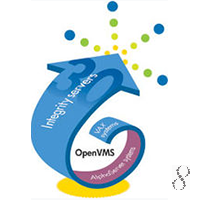Sources of HLB Problems
Issues Opening HLB Files
OpenVMS Isn't There
When trying to open your HLB file, you get the error "Can't Open HLB File Type". Generally, this is experienced in %%os%% because OpenVMS isn't installed on your PC. Your operating system cannot associate your HLB with OpenVMS, so double-clicking the file won't work.
Tip: Another HLB-related program can be selected to open the file by clicking "Show Apps" and finding the application.
Outdated OpenVMS
Your VMS / VAX Help Library file is incompatible with OpenVMS because you might have the wrong version installed. You will need to download a newer version of OpenVMS if you don't have the right version. Most of the time your VMS / VAX Help Library file was created by a newer OpenVMS than what you have installed.
Tip: You can sometimes get hints about the right program version by right-clicking on the HLB file, selecting "Properties", and looking at the version information.
Primarily, problems experienced when opening HLB files are due to having the incorrect version of OpenVMS installed on your computer.
Associated Difficulties Loading HLB Files
Even with the correct version of OpenVMS installed, you can still experience difficulties opening HLBs. If you are continuing to have errors with loading HLB files, other external issues might be to blame. Additional factors include:
- Windows Registry HLB file paths that are incorrect
- Corruption of the HLB file description inside the Registry
- Corrupt install of OpenVMS or other HLB-related program
- Your HLB can't be loaded properly (file corruption)
- Your HLB has adversely impacted by malware
- HLB-related hardware has device drivers that obsolete
- Windows has inadequate resources to open your VMS / VAX Help Library file
Quiz: Which image file type is the most popular format used on websites?

That's Correct!
PNGs are just slightly more popular than JPEG files (74.5% vs. 72.8% of websites using them) according to usage data from W3Techs.com.
Close, but not quite...
PNGs are just slightly more popular than JPEG files (74.5% vs. 72.8% of websites using them) according to usage data from W3Techs.com.



















